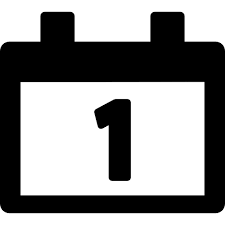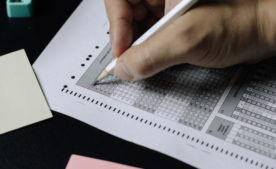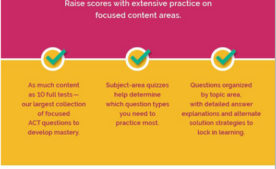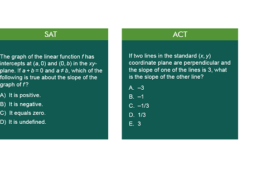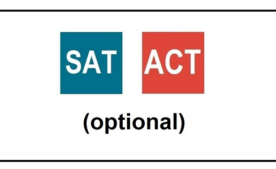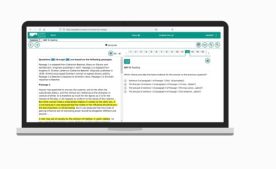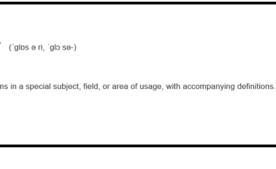So, you’ve slogged over practice tests, score reports, and test prep homework for weeks or months and the test date is just around the corner. What final tools will you have in your back pocket? What words of wisdom can you expect from your tutor as they say a final farewell and you head into the test room alone?
Here is a compilation of great tips from our veteran tutors to help you during the home stretch:
Know that “You’ve Got This”
- Trust the work you’ve done to prepare, don’t change a thing. Keep using the strategies and tactics that worked for you in practice.
- During the week leading up to test day, review vocabulary, grammar rules, and math formulas for SAT, and grammar rules and math formulas for ACT (since there’s no vocab on the ACT).
- Avoid studying the night before the test. Being well-rested will be much more advantageous than cramming when it comes to these tests.
Take Care of Your Health
There’s nothing worse than getting a virus or dealing with mental fog on test day. You’ve invested all the hours in test prep, now ensure you reap the rewards with:
- SLEEP. Go to bed earlier than usual during the week leading up to the test. Adequate sleep boosts your immune system.
- EAT nutritious foods. Try to fit in extra helpings of fruit or vegetables during the week leading up to test day. On the morning of the test, eat a good breakfast but avoid greasy or heavy meals.
- HYDRATE. In the days leading up to the test, drink lots of fluids. Even moderate dehydration can influence your mental clarity.
- EXERCISE. Another immune system booster, exercise also blows off stress, helps maintain focus, and helps you sleep better.
Day Before the Test
- On Friday, collect all of the items you’ll need in one place:
- Admissions ticket (have it printed and ready)
- Photo ID
- Calculator (charge it the night before, or if your batteries are replaceable, bring an extra set of batteries). Your calculator must be one from the approved list of calculators [ACT Calculator Policies] [SAT Calculator Policies]
- A good eraser
- 4 sharpened #2 pencils
- Your analog watch. If it has alarm or beeping functions, be sure they are turned off. (Smartwatches are prohibited by the SAT and ACT.)
- Healthy snack.
- Bottle of water.
- Cellphones are prohibited at SAT and ACT testing centers.
- Review where your test center is located, familiarize yourself with how to get there, and re-check the start time of the test and plan to arrive a half hour beforehand.
Morning of Test Day
- Wake up earlier than usual on test day to give your brain some time to wake up, to avoid the stress of last-minute rushing, and ensure that you have time for breakfast.
- Dress in layers (no hats or sunglasses). You don’t want to be distracted by the cold of sitting near a draft or the hot sun streaming through a window, but it could happen. Be prepared, bring a removable layer. Don’t get too comfortable though – pajamas and sweatpants might be good for watching movies at home but they will not prep your body and brain for the test.
- On your way to the test, or while waiting for the test to begin, get inspired!
- Listen to music that motivates you and makes you feel happy
- Try a meditation podcast or positive visualization activity.
- BYOT – Be Your Own Timekeeper. Once you arrive at the testing room, synch your watch up to the classroom clock. Proctors are supposed to write section start and finish times on the board. Take charge and write the information on your test booklet too.
During the Test
Don’t stress out about the Experimental Section (the “5th” Section). A portion of students taking the SAT or ACT will have tests that include “pretest” questions that don’t count towards your score. If you get a test that has a “5th Section” then you are one of those students. Read our blog post about experimental questions to understand what these are and how to handle them.
After the Test
When you receive those scores don’t forget to share them with your tutor(s)! They care about you and will want to know how you did. Send an email to your program director and an email/text to your tutor to let them know your scores.
Do you have any other wisdom to share? Please use the comments box below to share your thoughts and questions.

